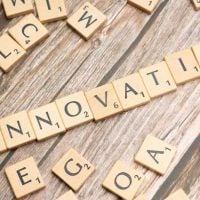Deadline: 19-Jun-23
EIT Manufacturing is looking for projects and organisations ready to transform the European manufacturing and meet the global demands of present and future generations by achieving:
- Flexible Production Systems for Competitive Manufacturing: Emerging technologies enable almost limitless product design and production flexibility, allowing full customisation.
- Low Environmental Footprint Systems & Circular Economy for Green Manufacturing: Using new technologies to minimise use of resources, energy, and material in production systems to enable new circular business models.
- Digital & Collaborative Solutions for Innovative Manufacturing Ecosystems.: Collaboration and business on digital platforms and value networks enable companies to create new and highly efficient value chains.
- Human-machine co-working for socially sustainable manufacturing: Smart use of automation and robots enables great workplaces, flexible production, and sustainable human work.
Strategic objectives Five strategic objectives (SOs), as set out in the Strategic Agenda 2021-2027, steer their activities and ambitions, and will help respond to major challenges shared by the manufacturing industry and society.
- Competitive Manufacturing Skills and Social Sustainability
- Powerful Manufacturing Innovation Ecosystems
- Globally competitive and resilient manufacturing
- Environmentally sustainable manufacturing
- Manufacturing fit for the Digital Age
Functional area: Innovation
Funding Information
- Total budget allocated to this call EUR 5.5 million EIT funding
- The total maximum EIT funding per year for all entities participating in the 2024 Calls is € 1,500,000.
Call Specific Conditions
- Topic 1: Optimising production processes and increasing resources efficiency through digital solutions
- European manufacturing is challenged by rapid market changes, unpredictable product demands and shorter supply chains. At the same time, the green energy transition has been accelerated due to the current energy crisis and geopolitical unrest.
- Expected outcomes & impacts
- Proposals under this topic should demonstrate that the activity will contribute to several of the following expected outcomes:
- Enhance overall factory efficiency
- Provide insights to help initiate refinements before production
- Shift to flexible manufacturing and rapid response to changes and need for adjustment
- Improve decision-making, prediction and anticipation of needs in energy and resource use
- Proposals under this topic should set out a credible pathway for the activity to contribute to one or more of the following expected impacts:
- Reduce waste of resources and environmental burden through optimised production processes
- Increase competitiveness of manufacturing companies in the global economy
- Proposals under this topic should demonstrate that the activity will contribute to several of the following expected outcomes:
- Topic 2: Socially sustainable and human-centric manufacturing
- The manufacturing industry has the potential to be socially sustainable by adopting human-centric technologies that prioritise the needs of operators and workers. This means placing human values such as safety, reliability, trustworthiness, and control at the centre of technological advancements. By doing so, technologies and new methodologies can enhance human labour and improve operator well-being.
- Expected outcomes & impacts
- Proposals under this topic should demonstrate that the activity will contribute to several of the following expected outcomes:
- Develop effective human-machine interaction and collaboration relying on mutual understanding.
- Enable industry workforce that is empowered through, and in control of, advanced technologies.
- Increase workplace safety and performance.
- Balance, support and augment humans at work by deploying automation and digitalisation.
- Proposals under this topic should demonstrate that the activity will contribute to several of the following expected outcomes:
- Proposals under this topic should set out a credible pathway for the activity to contribute to one or more of the following expected impacts:
- Create safer, more accessible and inclusive work environment that increase employees’ well-being.
- Increase human health and well-being at the manufacturing workplace while supporting the retention of older and physically weaker workers in their jobs.
- Make manufacturing seen by a large part of society as an attractive, clean, safe, and high-status job
- Topic 3: Environmentally sustainable manufacturing through circular business models and new technologies
- Twin green and digital transition has rapidly progressed, prompting industrial ecosystems to start the implementation of new solutions and redesigning their products and services. This evolution has significant consequences for manufacturing, as products and value chains need to adopt circular, carbon-neutral, and regenerative practices that contribute to positive environmental and societal outcomes, lowering the carbon footprint of forthcoming products. As a result, manufacturing is expected to be a major catalyst in driving this transformational change across industries.
- Expected outcomes & impacts Proposals under this topic should demonstrate that the activity will contribute to several of the following expected outcomes:
- Foster circularity design in the early product design phases to increase reusability and repairability.
- Facilitate the recycling, reuse and transformation of critical resources, industrial waste and scrap materials into the manufacturing of a new product.
- Increase, ensure and demonstrate robustness (in terms of quality) of refurbished/remanufactured products.
- Create and diffuse knowledge on appropriate material and design choices (for operators and designers) to foster sustainability and repairability.
- Enable remanufacturing businesses to scale.
- Proposals under this topic should set out a credible pathway for the activity to contribute to one or more of the following expected impacts:
- Fully adopt green and digital manufacturing and remanufacturing technologies, supporting circular value chains in the entire industrial ecosystem.
- Decarbonise manufacturing industries, in compliance with the Green Deal strategy.
Eligible Activities
In the context of this call – and selected activities will be part of the Business Plan 2023-2025 – they are looking for proposals for innovation activities on:
- Topic 1: Optimising production processes and increasing resources efficiency through digital solutions
- Topic 2: Socially sustainable and human-centric manufacturing
- Topic 3: Environmentally sustainable manufacturing through circular business models and new technologies
Entities eligible for funding
- To be eligible for funding, applicants must be established in one of the following countries at the time of proposal submission:
- the Member States of the European Union, including their outermost regions: Austria, Belgium, Bulgaria, Croatia, Cyprus, Czechia, Denmark, Estonia, Finland, France, Germany, Greece, Hungary, Ireland, Italy, Latvia, Lithuania, Luxembourg, Malta, Netherlands, Poland, Portugal, Romania, Slovakia, Slovenia, Spain, Sweden.
- The Overseas Countries and Territories (OCTs) linked to the Member States.
- The countries associated with Horizon Europe and the low- and middle-income countries;
Eligibility Criteria
- Any legal entity, regardless of its place of establishment, including legal entities from nonassociated third countries or international organisations is eligible to participate (whether it is eligible for funding or not), provided that the conditions laid down in the Horizon Europe Regulation have been met, along with any other conditions laid down in the specific call topic.
- A ‘legal entity’ means any legal person created and recognised as such under national law, EU law, or international law, which has legal personality, and which may, acting in its name, exercise rights and be subject to obligations.
For more information, visit EIT Manufacturing.









































